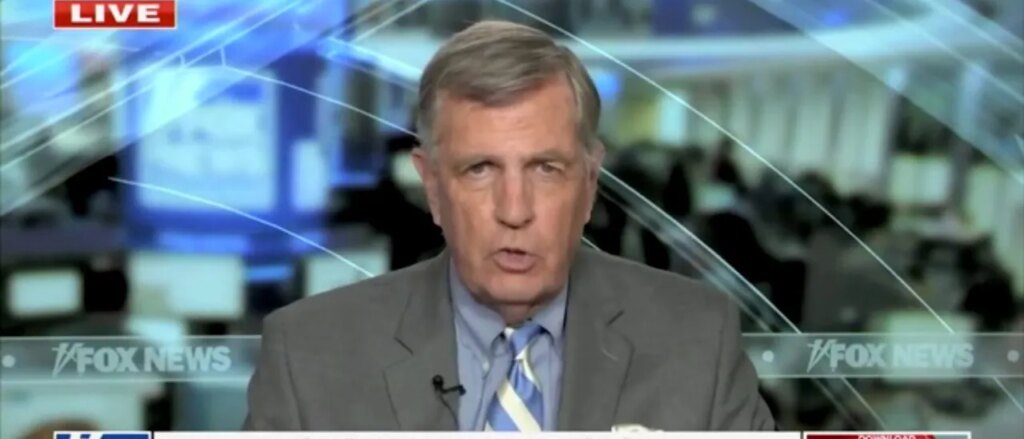Political Commentary on Government Shutdown
On Wednesday, Brit Hume, the top political analyst for Fox News, discussed the ongoing government shutdown and the implications for the Democratic Party. While it might seem like Democrats are taking the blame, Hume suggested that media coverage could influence public perception.
Congress failed to approve the Stop Gap funding bill by the October 1 deadline, leading to the federal government shutting down at 12:01 AM. Hume remarked, “You might think the Democrats are at fault, but a lot hinges on how the media presents the situation, so it’s hard to say for sure.”
Looking back over a decade, he recalled how Republican Senator Ted Cruz urged House Republicans to attach funding issues to efforts aimed at dismantling Obamacare, which ultimately sparked a government shutdown.
“If we rewind to 2013, Cruz rallied House Republicans to block or defund Obamacare through a government shutdown. It drew significant criticism,” Hume reflected. He emphasized that Republicans were responsible for that shutdown, saying, “They incited it and perhaps should have faced consequences for it.”
Hume highlighted that President Trump signed a law—a “big, beautiful bill”—which included budget limitations affecting various programs, including Medicaid. Democrats are now advocating to restore some of that funding.
The House Republicans did manage to pass a resolution with bipartisan support, including some Democratic backing in the Senate. However, they needed 60 votes to overcome a filibuster, which ultimately stalled progress and contributed to the ongoing shutdown.
He noted, “The Republicans are struggling, and they proposed what the Democrats suggested back in 2013. This is essentially a straightforward plan to keep the government running, which they passed in the House.”
In October 2013, House Republicans passed a funding bill that aimed to delay or reduce the Affordable Care Act. This led to a standoff with Senate Democrats, who rejected any funding tied to changes in Obamacare, causing a 16-day federal closure due to failed budget negotiations.
The present debate centers on health care costs, with Democratic leaders advocating for the renewal of enhanced Obamacare subsidies as a condition for any funding agreements. Making these subsidies permanent could increase the federal deficit by an estimated $350 billion over the next decade, according to the Congressional Budget Office. In contrast, Republican lawmakers contend that the priority should be passing the funding bill before tackling new healthcare tax provisions.







